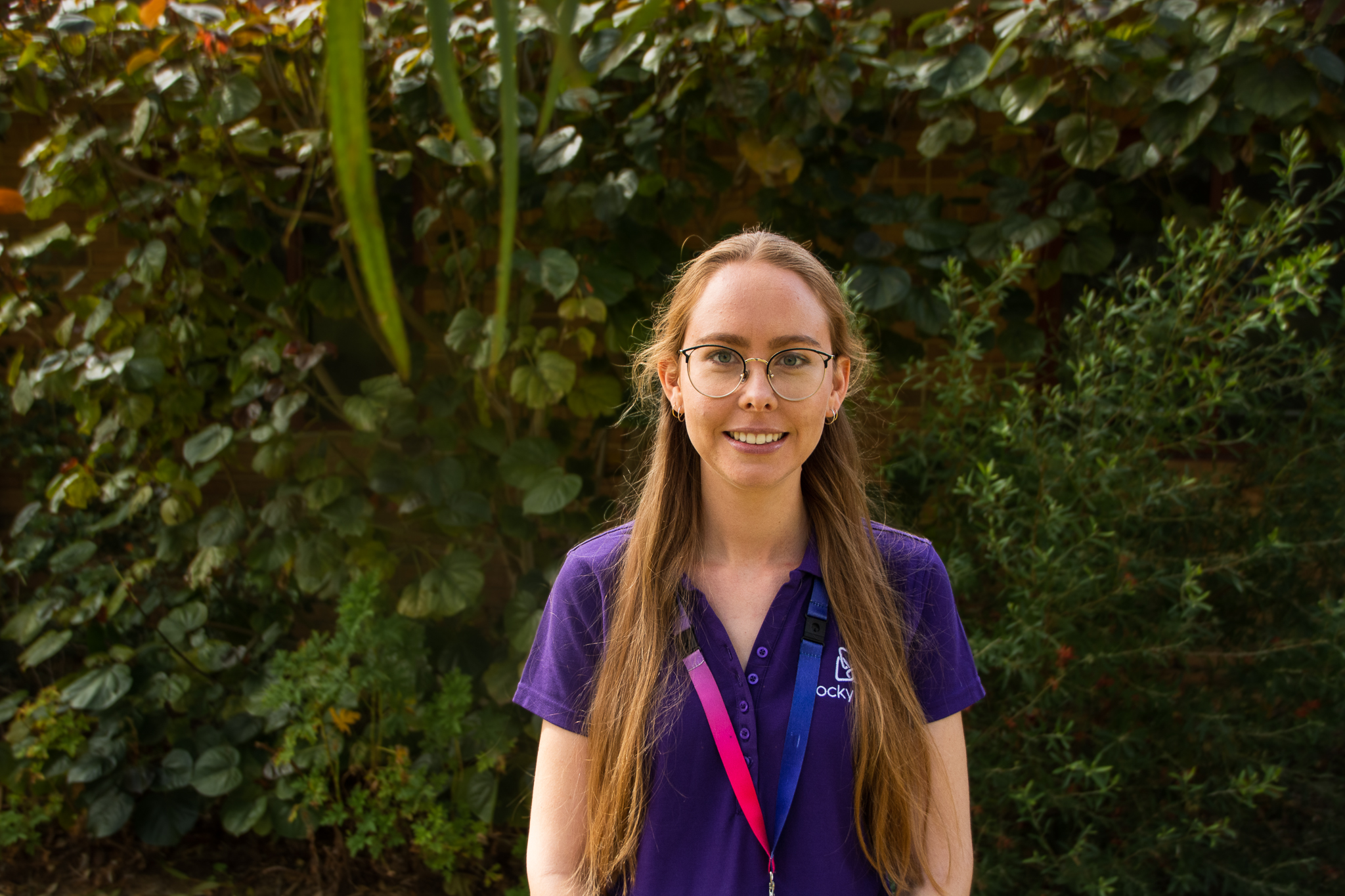Learn more about Neurodiversity
Neurodiversity Celebration Week was recognised worldwide from 13 to 19 March. The aim of the celebration challenges stereotypes about neurological differences, transform how neurodivergent people are perceived and supported, and to promote neurodiversity acceptance and inclusivity.
Rocky Bay has begun an exciting initiative – the Neurodiversity Project – which aims to create an organisation-wide shift to become more neurodiversity-affirming, starting with our Clinical services and looking to provide more neurodiversity-affirming service alternatives.
The first phase of the project focused on building awareness of neurodiversity-affirming approaches across Rocky Bay, as well as reshaping social skills across therapy services. The second phase has started with a review of our existing Diversity and Inclusion framework to make sure we remain contemporary and inclusive of all differences across our organisation.
Meet Liz Baird
Rocky Bay’s Advanced Clinician Speech Pathologist at our Joondalup hub, Liz Baird, is an autistic person and our Neurodiversity Project Lead.
Liz has been with Rocky Bay since 2019 and is passionate about providing responsive and contemporary services to autistic customers. She is also an active advocate and provides education on neurodiversity affirming services within Perth and beyond.
Read our Q&A where Liz explains more about neurodiversity, and her role within Rocky Bay!
What does ‘neurodiversity’ mean?
The term neurodiversity simply means that everyone’s brains are individual, and that cognitive diversity is normal.
The Neurodiversity Movement builds on this, proposing that neuro-divergence – which includes autism, ADHD, dyslexia, dyspraxia and more – are natural and valuable differences.
Within this model, we don’t try to ‘cure’ neuro-divergent people or make them act like others, but we aim to promote inclusion and respect within society.
What is it like being an autistic clinician?
I work predominantly with autistic youth and adult customers and see being autistic as a huge advantage.
It’s really important to me to be proudly autistic and embrace my identity, and I hope that I can provide positive representation and show my customers that it’s okay to be autistic. There is still so much stigma and misinformation about autism, and this often results in young autistic people feeling uncomfortable or shameful about their diagnosis – which isn’t helpful for anyone!
I think that neuro-divergent clinicians have the potential to relate to customers and help them feel supported in a unique way. Representation is very important, and I am passionate about neuro-divergent staff being across Rocky Bay departments and roles.
What does it mean to you to be autistic?
To me, being autistic just means having a different way of sensing, processing, and responding to the world around me.
My brain often does things a bit differently to neuro-typical (not neuro-divergent) brains, but these ways make a lot of sense to me. Because of these differences, I might find some situations harder than neuro-typical people do, such as being in busy, bright, loud environments, or dealing with lots of changes.
There are also situations where I excel, for example, pattern recognition and planning, knowing lots about my favourite topic (neurodiversity!) and being a clear and direct communicator – all very useful skills for the Neurodiversity Project!
How did the Neurodiversity Project get started?
As both an autistic person and clinician, I have been very excited to see the growing popularity of the neurodiversity movement over the past few years in particular. I noticed the autistic community advocating for neurodiversity-affirming services, more research papers suggesting this was useful, and more disability providers talking about this. Plus, I received lots of positive feedback from customers around my own neurodiversity-affirming practices.
As I spoke to my Rocky Bay colleagues, I realised that many therapists were aiming to upskill in this area, and so we put together a proposal to assist all clinicians. We got so much support it was soon evident that this Project was to be Rocky Bay wide!
What are some of the ways Rocky Bay will look to make our services more neurodiversity-affirming for customers, and what might this include?
While the Neurodiversity Project is still starting out, we have big plans!
Currently in Clinical Services we are in the process of purchasing some new resources and are almost ready to trial our first staff training modules. We’re starting with reshaping the way we provide social skills therapy and are working to update therapy services throughout.
We aim to upskill all Rocky Bay staff with contemporary knowledge on neurodiversity to support the provision of affirming and responsive practices across Rocky Bay. It’s an organisation-wide approach, and I look forward to see how this is translated into practice as we evaluate policies and procedures across departments to continue to strive for inclusion.
What do you love to do in your free time?
I go walking in nature with my rescue greyhound Rey, enjoy eating out with friends, and I love painting – I have been working hard to ensure there is at least one mural in each room of my house.
*Thank you to Liz who wrote this Q&A in her own words and shared it with us!
